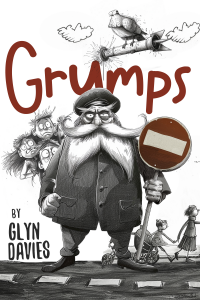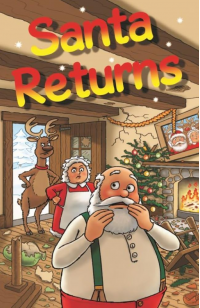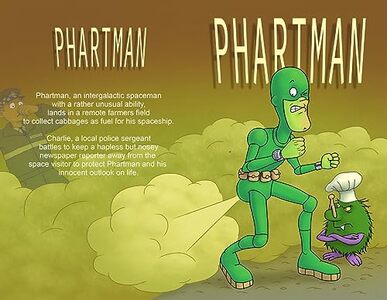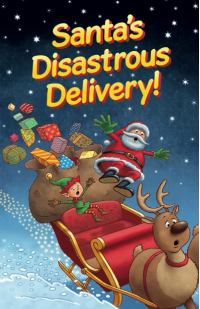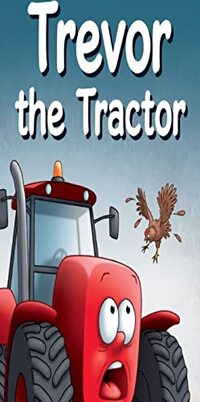Glyn Davies Interview Published on: 23, Apr 2024
 Can you share a bit about your journey into writing? What inspired you to start creating stories?
Can you share a bit about your journey into writing? What inspired you to start creating stories?
I have always had a love of writing, way before computers, I was a prolific letter writer, usually with a fountain pen, which I find adds to the pleasure. I still use one now if I’m in the office, as my family have brought me many pens over the years.
Sadly, since the advent of technology I tend to use Word or E-mail for correspondence, and letter writing has become a lost skill
My love of story telling started when our first daughter Chloe, arrived in 1983 and it would be the time I would spend reading her a bedtime story. She would have probably four favourite books, which we would have to narrate the same boring tales’ night after night. I remember on one occasion thinking “I could write a better story than this”, which I’m sure we have all uttered at some time, whilst trying to entertain or kids. I was working as a truck driver at the time, and it was driving at night, the idea for Trevor The Tractor started to formulate. I had been thinking of a story line for a few weeks, but not put pen to paper. Until one night when the truck broke down, I was informed that it would be at least two hours before the breakdown truck would reach me. So sat in the dark (before mobile phones) I decided I would make a start on writing the story for Trevor The Tractor. It may seem a little big headed or simply fantasy, but I found that as I started to write, the tale unfolded naturally, and I had almost completed the story as the cavalry arrived over the hill
I must point out that Trevor is what it was intended to be, a short bedtime story, which is now published on Amazon. Santa’s Disastrous Delivery, which really launched my love of storytelling, was again during my night-time truck driving. It was approaching Christmas and my thoughts turned to thinking about the obligatory glass of sherry and mince pie we would leave for Santa on Christmas Eve. Then during the night, the thought that if Santa drank all the sherry people left for him, he would be in a hell of a state by the end of the night.
But you can’t write a children’s story about a drunken Santa, but he could be a complete bumbling idiot, and so the story began. I have adopted my sense of the ridiculous and absurd ever since.
Growing up in the 50s with iconic comedians like Mr. Pastry, The Marx Bros, and others, how have they influenced your sense of humor and storytelling?Growing up in the 50s and 60s, films and television was a lot simpler, relying on slapstick, timing, and very visual humour. I would sit and watch The Marx Bros, Laurel & Hardy, Mr Pastry and be enthralled by the over exaggerated antics, which I still lean on now to build the story around my characters.
Your love for slapstick and the absurd is evident in your writing. How do you translate these comedic elements onto the page?I always try to put myself as an observer in the scene of the story, that way I feel more able to immerse myself in the moment and find the hopefully comedic content, which I try to paint a picture for the reader to interpret in their own imagination
Who are some of your favorite comedians or humorists from the past that continue to inspire you today?The Goons, Peter sellers, Michael Bentine, (Potty Time, you may have to look for old clips) was probably one of my favourites from the 60s, just plain silly, but something that I sometimes dig out from the back of my memories to inspire a situation for a part of a story
In what ways do you think the humor landscape has evolved since the 50s, and how does that impact your writing for a contemporary audience?I set out to write for myself and what amuses me, being a lover of people watching, I have over 60 years of memories of observations, that I seem to be able drag up from the recesses of my mind to create the characters and stories. I will write a few pages at the start of a new story, then send it out to my family. They can be quite brutal at times! But it makes me hone the story, till it finds its own pace.
Could you share an anecdote or a moment when you realized the power of humor in connecting with your readers?It was recently when a friend, who is disabled said he showed one of my books to his carer and she sat crying with laughter, I thought I must be doing something right.
How do you balance the fine line between humor that appeals to children and that which resonates with adults who are still kids at heart?I think it’s important that a story should be entertaining for the narrator as well as the listener, as the story will come to life if both are enjoying the tale. So, I try to capture the imagination of a wide range of ages, from kids, young adults, and anyone who is still a big kid at heart. Growing old is a privilege, growing up is optional. I Like to explore the Why and How, in some stories. Why is Rudolph’s nose red, How does Santa enter your house if you don’t have a chimney, Why do we never see Santa, (Santa’s Disastrous Delivery). How can he manage to deliver all the presents in one night (My latest book, not published yet). I tend to approach a story depending on the characters. Santa, you can disappear into the realms of fantasy, stupidity and the absurd, so long as it relates to something the reader can identify with.
Phartman is a mixture of fantasy and reality as he is a character appearing in a normal situation. But it is his sense of innocence and naivety that holds the key to the humour.
Grumps is a person we all know in some way. It is the culmination of events that he engineers, or simply takes advantage of, that the story is built around.
If you had to describe your writing style in three words, what would they be?I’m not sure how I would describe my own sense of humour in three words, as we all have our own idea of what is amusing. I find some modern comedians about as funny as a poke in the eye. So, me. Silly Comedic Nonsense!
What role does nostalgia play in your writing, especially considering your upbringing in the 50s?I tend to look back on the older comedians for my inspiration, as the humour was a lot simpler in its visual execution. It has given me the love of the ridiculous and a somewhat quirky sense of humour.
Do you have a favorite comedic scene or moment from your own work that you particularly enjoyed creating?Picking a favourite scene, is perhaps like saying who is your favourite child. I tend to get completely engrossed in a story that I am writing. With he story I have just finished, I got quite emotional as I wrote the closing scene, as it felt I was saying goodbye to friends. If I had to pick a particular story, I think, Arthur (Grumps) where he goes into Stamps newsagents to collect his magazine and snuff. It was great fun writing the scene, as the scenario unfolded. But they are all fun to write as you let your imagination run riot with the characters.
How do you think humor contributes to storytelling? Is it a tool for escapism, connection, or both?I think comedy is a serious antidote to today’s life and times. You can lose yourself in all kinds of fiction and fantasy, I think as long as it makes you laugh, it makes you feel better.
As someone who aims to entertain readers, what advice do you have for aspiring writers looking to infuse humor into their work?Again, I write for myself and what makes me laugh, I pull in ideas from other comedians as well as people I have worked with, known, or observed. A lot of character ideas are people I may have seen briefly or perhaps several times, but you can use some of their mannerisms or even a saying that sticks in your mind, but you can get inspiration from people just being themselves.
Grumps was inspired from my Dad, he could be a grumpy bum, but with a brilliant sense of humour, which gave me the initial idea.
Phartman, was the logo for another business venture we had some years ago, Initially I thought about a superhero, but then I didn’t want to create another saviour of the world.
I still have the original advertising board in the garage roof, I wave to him sometimes, although Phartman has been altered slightly to suit the story. I never set out to write a story for a particular audience and often I will come up with the ending soon after the start. So, I will put that to one side with other ideas as they come to mind, then weave them into the tale naturally as it progresses.
I don’t set myself goals, I will write when I have the inspiration, sometimes it may be a few days or even two weeks.
I have read articles where authors say they write every day, even if its nonsense. I find that self-defeating, It’s a bit like washing your car in the rain. It looks ok till it dries, then you have to do it all again. Other times I will wake early in the morning with a story line, so I will get up to put it down on paper.
Writing should be a pleasure not a chore as it will probably come across in your writing, and if it makes you laugh as you do so, that’s brilliant.
I try to make the story a page turner, I have read many books and not finished them, as they tend to be written with too much filler for a particular word count. If it ends with 8000 or 80 000 words, it is more important to me that the story flows naturally towards its ending.
It was never my intention to be a best seller or be a millionaire from my ramblings, I get a thrill from knowing that someone has enjoyed my books, if it makes them laugh, that makes my day.
BUT, if Steven Spielberg were to ring me, I think that would put a smile on my face.
When did you join AllAuthor? What do you think of the experience so far? Do you have any feedback?I can’t remember exactly when I joined AllAuthor, but it has been a great source of encouragement to keep plugging away at promoting my books. It’s great that I get the optional banners to choose from together with the regular posts promoting my books, which I have been taking advantage of.
If I’m honest I probably don’t take enough advantage of all you have to offer, writing the books is the easy part, I have found promoting and gaining exposure akin to pushing an elephant up a hill. But every day is a learning day, so I will get there in the end, with a lot of gratitude to yourselves.
Share Glyn Davies's interview
With a childhood steeped in the comedic stylings of Mr. Pastry, The Marx Bros, Laurel & Hardy, and Charlie Chaplin, Glyn Davies developed an enduring affection for slapstick and the absurd. His quirky sense of humor, honed through years of laughter-inducing influences, shines through in his writing. Glyn delights in crafting stories that tickle the funny bone and bring smiles to faces, aiming to entertain not just children but anyone who remains a kid at heart.

